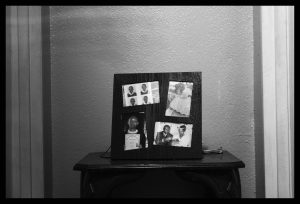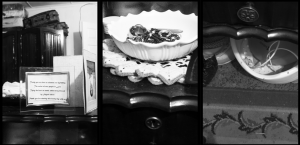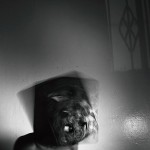"What brings us together, even when coming from different walks of life, backgrounds, experiences, and cultures?
This is a very intriguing question for me as it has made me want to start a new project entirely. I have created a project that deals with the dynamics of family and household, and another one which is currently on the EAS called AGES which deals with how capitalism and globalisation work hand in hand, and how that here in South Africa talk about power as to who is owning what.
But the question above reminded me how art can be used as a social tool to talk about our similarities rather than difference, i remember the edge and passion i had before i was even viewed as a photographer.
That enthusiasm and positive energy that helped me to want to be an artist and to purse a career which i felt was going t0 have an opportunity to collaborate with a lot of people and have reactions
This brought to me a chance to let go of my ego and expectations, because when working with people, we have to have common understanding and strength in order to be able to create a project which reflect both parties level of creativity and intention.
I feel that this is a challenge which i am ready to take on and have a more in depth response to my life and experience and also known someone else background and culture, which i believe has a lot of similarities as well as differences, but have a common thread to them.
Looking forward to collaborations.
These are some images form my project on home.
which also was talking about my background, identity and my culture in a family context. But also raising question on the construct on home





Hello Nathi,
When reading your post I found a lot of similarities to what I would like to do in my art, and wish we can collaborate somehow, but don’t think we are allowed to do so for this Building Bridges project since we both are international artists. Even though this may not happen this time, but maybe next time!
Capitalism caused worldwide migration and let people from different backgrounds, experiences, and cultures work together, however, at the same time, it formed classes and segregations. When artist Stephen Wilkes talk about the moment when he shot his photo Serengeti National Park in Tanzania, he said “I photographed for 26 hours, 18 feet in the air, and unimaginable that for 26 hours, all competitive species share a single resource called water, the same resource that humanity is supposed to have wars over during the next 50 years. The animals never even grouched at each other. They same to understand something we humans don’t, that this precious resource called water is something that we all have to share.” It’s interesting to evaluate the capitalism and globalization from different dimensions and perspectives through art.
Dengke
Hi Dengke
I appreciate your offer to collaborate and i am very interested in it.
Stephen Wilkes is a photograph who’s work i have followed for the past couple of years, the way in which his images give context to things that we wouldn’t necessarily pay attention to. The classes are the main tool of the capitalist system as that one of the only surviving division that we have to fight as humanity. To realise that we are all in the same class of living which is not determined by materials that we posses
I really like your question “What brings us together, even when coming from different walks of life, backgrounds, experiences, and cultures?”, and, all the possible answers in yours works.
I found out the same answer, Language, and Home. Actually, there is a strong connection between those two words. It’s not for nothing the phrase „Mother Language“. The beauty’s in the diversity of all the languages which we can (not) understand. Or the Homes that are different from our Home. Still, you can feel comfortable or not. However, every identity is written in the languages, at the same time in our home. With changing your Home, or Language, it’s impossible to lose your Identity, you just expand it.
Understanding each other, listening to our different walks, experiences, stories, respecting our Homes is the recipe for bringing us together. And the English language I’m seeing more just like a tool for making our conversation between different cultures easier. (And I will not speak about who choose exactly to be the English our mutual language and why, because it’s too wide subject.)
The languages are living matter. They are influenced by others languages. Some of them are dying, some are changing in different dialects and, some are born out of it.
The same like Homes…
i agree totally, i think thats the beauty in the struggle. as much as we are constantly evolving so should the way we perceive our environment.
I also think that we should have an imprint as a generation which challenged the norm? t
Its extremely intriguing, this conversation that your post has generated Nathi! Though Vishal’s question of what kind of bridges we are building is one that is integral, there is something about these conversations that are being generated by the project which is itself re-iterating the strength that lies in a common tongue.
Within a country like ours, and yours as well, I do think its hard for us to discuss colonial histories and what we now know as common languages, without being extremely aware of the fact that we are a generation now that lies in an inbetween. I can safely say, for atleast the Indian subcontinent, that we have not walked far from the residues of colonial rule, and yet very few in our midst today have really experienced what it was then. Our understanding of colonial rule and its impacts have begun to dilute in lieu of globalization and the kind of lives we are leading. Just as Vishal says that a common language can cost a nation so much more, it is also hard to deny that our existence and identities in such nations now cannot be separated from our English newspapers, cups and cups and teas and coffees, and the Doric and Ionic columns that accompany white facades in one part of our cities or the other.
I have very little background about South Africa’s colonial history, though I have been gradually familiarizing myself with isolated myths that I see mirrored within beliefs and myths of my own hometowns. I do hope to understand your practice and spaces in the course of the next few months.
I agree with your statement that we are inbetween what we percive as whats common language and our own. I believe that we as the new generation, through our artistic practise have an oppurtuinty to raise our voices to our conern about the common language is killing our dialect. How are we reclaimg this as the current youth?
As for the “Our understanding of colonial rule and its impacts have begun to dilute in lieu of globalization and the kind of lives we are leading.” This for me is a very important question that i have been studying through my research and photography. We have become so attached to material that we do not realize
who we are supporting?
how is that affecting us economically?
who is creating that coffee, how is it distributed etc ?
For our countries these are very cruicial question that we need to face. The fact taht we were never given time to grow and regenerate of identities by ourselves. The influence is heavy!
I love that you’ve opened this post with a title in another language (I think it’s Afrikaans). As another member of a post-colonial country, I am constantly questioning the lines between thoughts that are inherently mine and the thought processes we have inherited through years of colonial onslaught. And the effects of the English language on these thoughts. There can be no doubt about the long lasting effects of colonialism in terms of the destruction and swift replacement of culture, yet we are continually held to the definition of ” our culture” in a language that is still, a bit alien to us. Interacting here in the supposed democratic space of the internet, we are still bound by this last straw of oppression (the english language) and struggle to truly claim it as our own. I look forward to more of your writing especially as you break down barriers to communicating with other artists.
hahaha Indeed its Afrikaans, When translated into english means ” where is my headspace?/ what am i thinking?
I do believe that, our thought process are very much influenced not only by ourselves but those around us, essentially the earlier who are very much still think with the effect of colonialism. I mean as you suggest that by using english we are already bounded.
Certainly its gonna take us a while to overcome this, as we have claimed this as an international language of communication, I think we as artist can have an opportunity to question its role and the fact people where forced to use this language, although some resisted it has found its way to infuse its self in our current culture.
Thanks for your perspective i think its very important
I am also very intrigued by this question and it is good you talk about letting go the ego/expectations. It is difficult to let go expectations from somethings when you have the media/news. I have been in South-Africa once and for me it was very interesting that I saw similarities and differences at the same in the cultures. It has a lot to do with the history with the Dutch ofcourse but yet it was remarkable for me.
I am Dutch speaking and the title readable for me. Don’t you think language is already one of the things that brings different cultures together?
Both you and Vishal are raising very big questions, about colonialism, the culture of post colonialism, the role of language, the relationship between language and thought. Vishal seems to suggest that the use of the colonizer’s language in a former colony might perpetuate some form of oppression.
You are suggesting that language might well be “one of the things that bring different cultures together”. I like your way of thinking of language, because at first sight we might view the variety of languages as a tremendous obstacle to the communication between people belonging to different languages/cultures. On the other hand, during times of nation building, the choice of one language to be taught in schools and used in the administrative offices helped the communication between people living in different areas of the country, and speaking a variety of languages and dialects.
Could you explain more how you envision language as a tool for intercultural communication?
I understand the need for a common language in terms of nation building, but when you closely examine the areas that were colonised, they had a very different understanding of what constitutes a society. India for example was a cluster of kingdom-states/tribal kingdoms etc., under various rulers, the multiple colonisers and especially the british solidified these states into one union that was easier “for them to rule”. So was Africa, The Carribean, Australia, North America and so on. The need for a “common language” as a way to bridge the communication gap between cultures is absolutely essential. But I must ask, at what cost? And whose language becomes common? Not one that is common to these former colonies, but one of their colonisers. We might be able to build bridges across cultures and countries today with a language such as English, but I am interested in the question – “what kind of bridges are we building?”
Im intrigued because my follow on question to this is weather we in the next ten years can form our own language?
In order for engilsh to exist it borrowed from words from
Latin 29%
French (includes Anglo-French) 29%
Germanic Languages
(Old/Middle English, Old Norse, Dutch) 26%
Greek 6%
Other languages/ uknown 6%
Derived from Proper Names 4%
According to its histiory it orginates from the Anglo-Frisian dialects and was brought to Britian by German settlers and it was consider as a west German languge. Throught this alot of other languages where scarified notably Common Brittonic,Welsh, Cornish, Cumbric.
I think we need to understand how this brigde “english ” was bulit in order to have an understanding of what bridge we want to build.
Do we have the same information about our kingdom-state/tribal kingdoms. and how they were also some of them died in order for the others to exist. Are we bringing this to the forth and sharing our common stories of where our people and heritage has been put on hold for others? I that is a brigde we need to build
The Dutch played a very central role in the politics and current living conditions in modern South Africa. It was the dutch settlers of 1652, with Jan van Riebeeck, who after a lot of travelling wanted to settle in Cape Town. I think their imprint is still very present in our society.
Certainly our use of language, is one common thread through which we are connected. Most of our cultures are already infused with language, and are able to construct and express ideas through language.